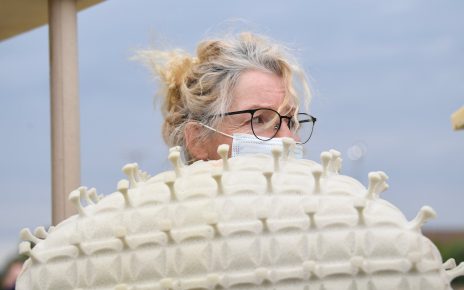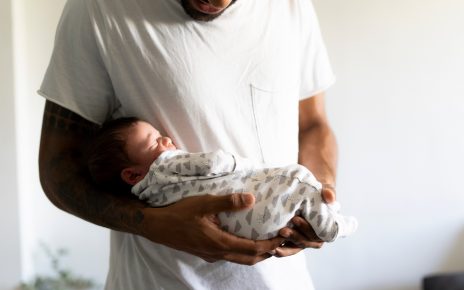Racial data on COVID-19 shows a devastating pattern: The disease is ravaging Black communities.
In New York City, Black and Latino residents are dying at twice the rate of white people. In Louisiana, 56 percent of the people who have died from the disease are Black, even though whites comprise 63 percent of the state’s population. Nationally, the CDC finally just decided to release some racial data, and revealed that Black people account for 30 percent of cases, despite accounting for just 13 percent of the population.
These are grim statistics. But they don’t even begin to show the full impacts of COVID-19 on Black Americans and other communities of color. Many states have yet to release any data, and the existing data is often incomplete. The federal government is missing racial data for an alarming two-thirds of confirmed cases—and still has yet to disclose data on deaths by race.
History shows that when crises strike, Black Americans often experience the worst consequences. We mustn’t continue allowing this to happen. Our organizations—the National Birth Equity Collaborative and PolicyLink—recently joined a coalition called WeMustCount demanding the data. Once we have that data, we’re calling on policymakers to take immediate action to help.
The data on Black Americans and COVID-19 are shocking but not unexpected. Engrained racist structures prevent them from fully accessing health care, education, employment and more—all of which increases susceptibility to COVID-19 and its most devastating health consequences.
These issues trace back far before the current pandemic. It was baked into the nation’s founding and carries forward today. Black Americans have always suffered disproportionately from national crises.
Consider Hurricane Katrina. Before the storm, Black New Orleanians were more likely to live in poverty and be unemployed than white people. Discriminatory housing practices also placed Black people in areas more susceptible to flooding. These factors and more caused Hurricane Katrina to wreak far more havoc on Black communities than white ones.
Yet after the storm, leaders implemented recovery policies that exacerbated racial inequities—for example, housing programs that advantaged white homeowners. More than a decade later, many Black communities still haven’t fully recovered. Of the 175,000 Black Americans who left before the storm, 75,000 never came back. Meanwhile, the white population returned to its pre-storm level.
Fast-forward to years after Hurricane Katrina, when the Great Recession ravaged Black communities nationwide. Thousands of Black Americans were forced out of their homes as banks peddled predatory mortgage products to Blacks, Latinos and other communities of color. In fact, one study found that among recent borrowers, Black Americans and Latinos lost their homes to foreclosures at twice the rate of white Americans. Another analysis found that, in the run-up to the housing crash, Black people with similar credit profiles to their white counterparts were more likely to receive subprime loans. Black Americans were also more likely than white Americans to face unemployment as a result of this Wall Street–driven crisis.
The effects will be felt for decades: By 2031, median wealth for a typical Black family will be nearly $100,000 less than if the recession never occurred, according to an ACLU analysis. In the end, the banks—but not the Black community—were made whole.
There are countless other examples of major tragedies disproportionately hurting Black Americans. Now, as we look towards our COVID-19 response, we must ensure that we protect these communities and fight for their just and fair inclusion into all facets of recovery from health and economic crises.
A foundational step is releasing comprehensive racial data on COVID-19. Throughout history, there has been immense resistance to collecting racial data on pressing public issues, especially in the health care sector. Some claim it’s too difficult to collect racial data. Others believe it’s not important to record that information during a medical appointment. Still others think that race doesn’t significantly affect treatment, even though research shows specific racial groups have different common health problems.
Buried behind all of this is an underlying fear: Releasing the information would mean bringing attention to a problem that policy makers could otherwise easily ignore.
It’s crucial that this attitude changes. Only when we have comprehensive, accurate racial data can we start solving racial inequities. WeMustCount recently sent a letter to the HHS and CDC calling for COVID-19 testing and health outcomes data to be disaggregated by race—in addition to ethnicity, primary language, genders, disability status and socioeconomic status. Recently, Senators Elizabeth Warren, Kamala Harris and Cory Booker, as well as Representatives Ayanna Pressley, Barbara Lee, Karen Bass, and others released a bill that would mandate the CDC to publish this information daily.
Once we have the data, we must take immediate action to help communities that are most directly impacted. That includes allocating more testing and treatment resources to these communities. Beyond the pandemic, we must take steps to rectify systemic issues that cause these inequities.
Consequent to intentional exclusionary policies—before, during and after national crises—Black Americans have felt some of the most devastating impacts. Through COVID-19 and beyond, this pattern will continue—unless we take action now and press policy makers and public health officials to do what is needed. We must use comprehensive data to rectify our nation’s alarming racial inequities.




